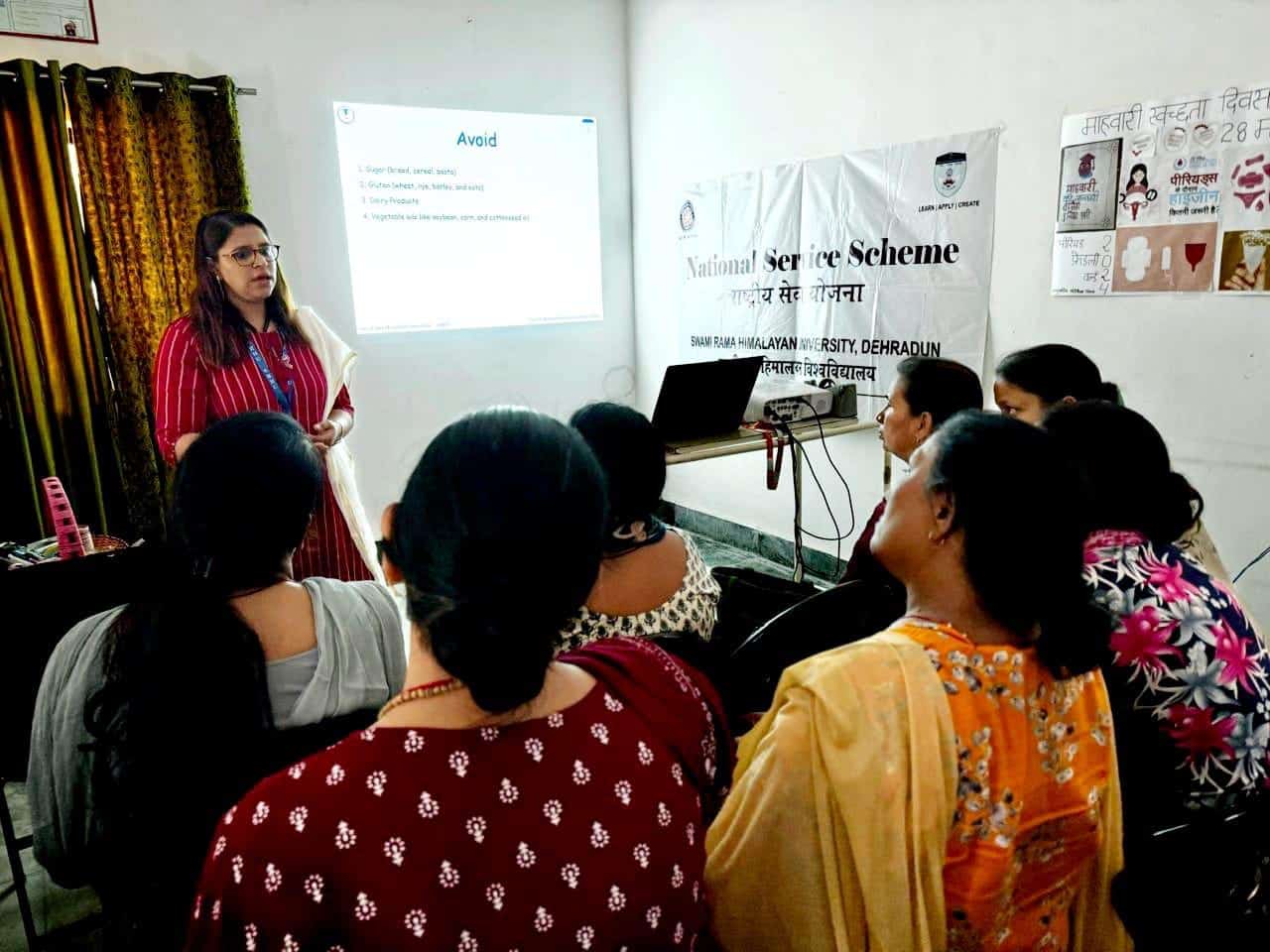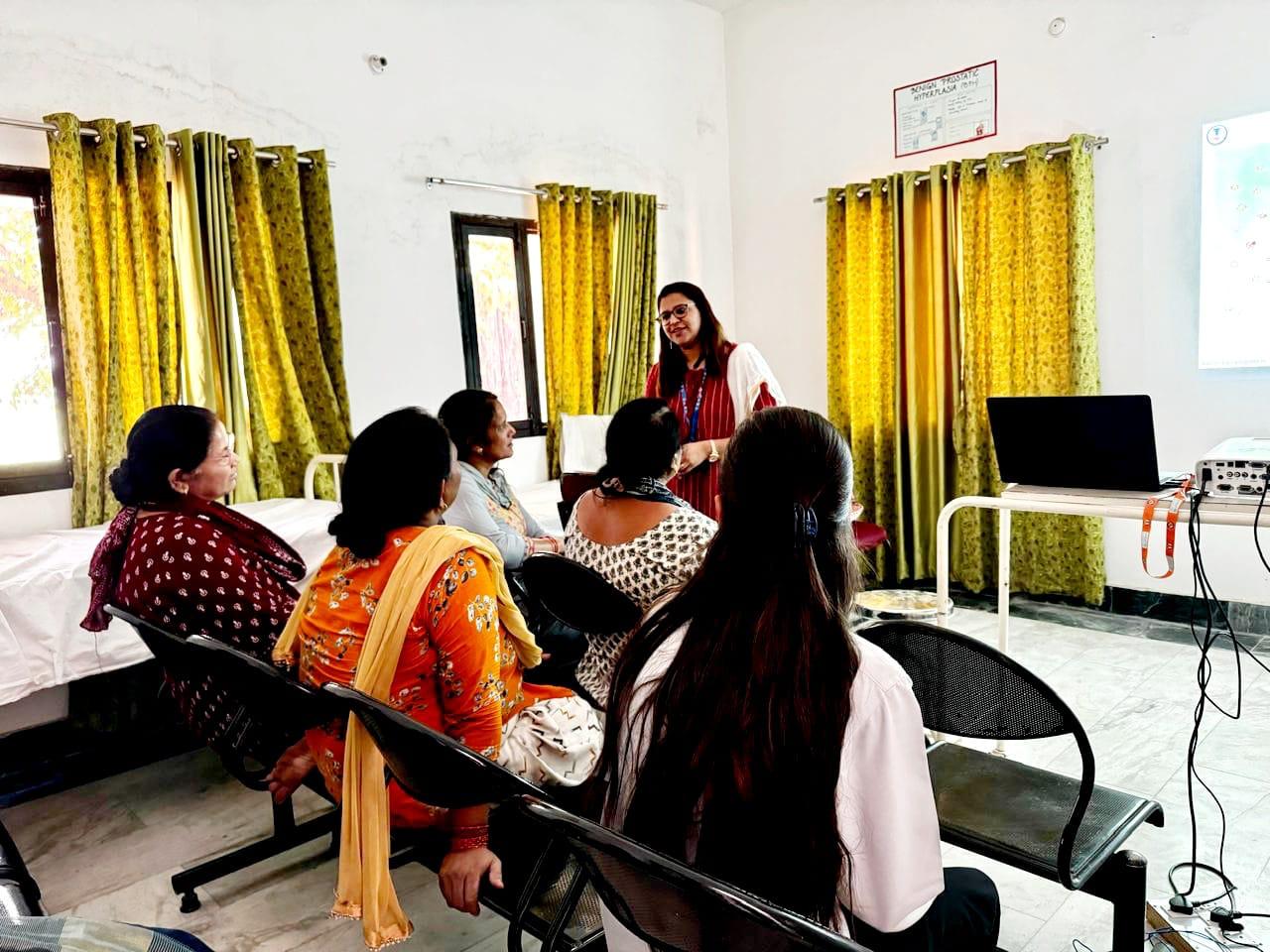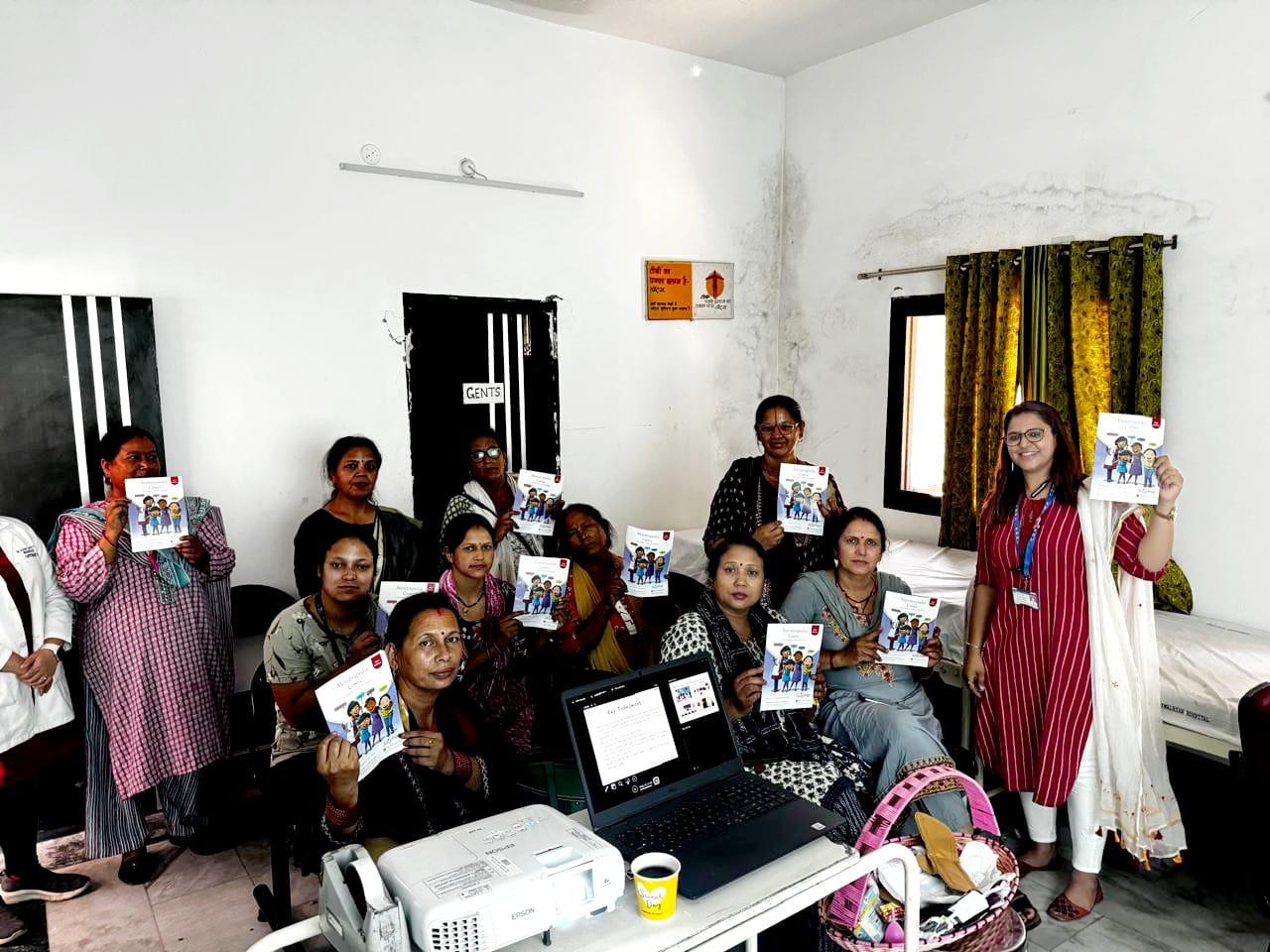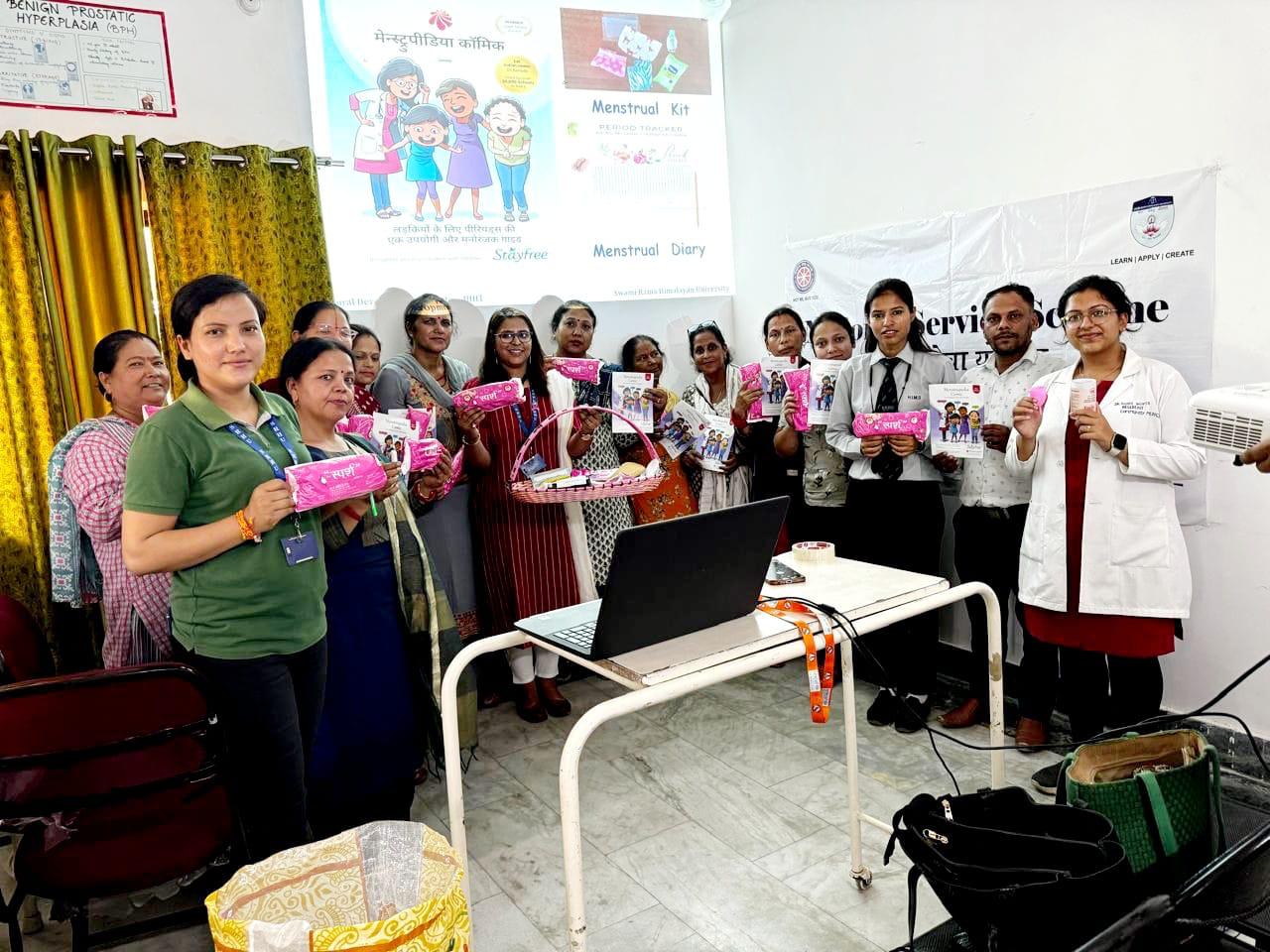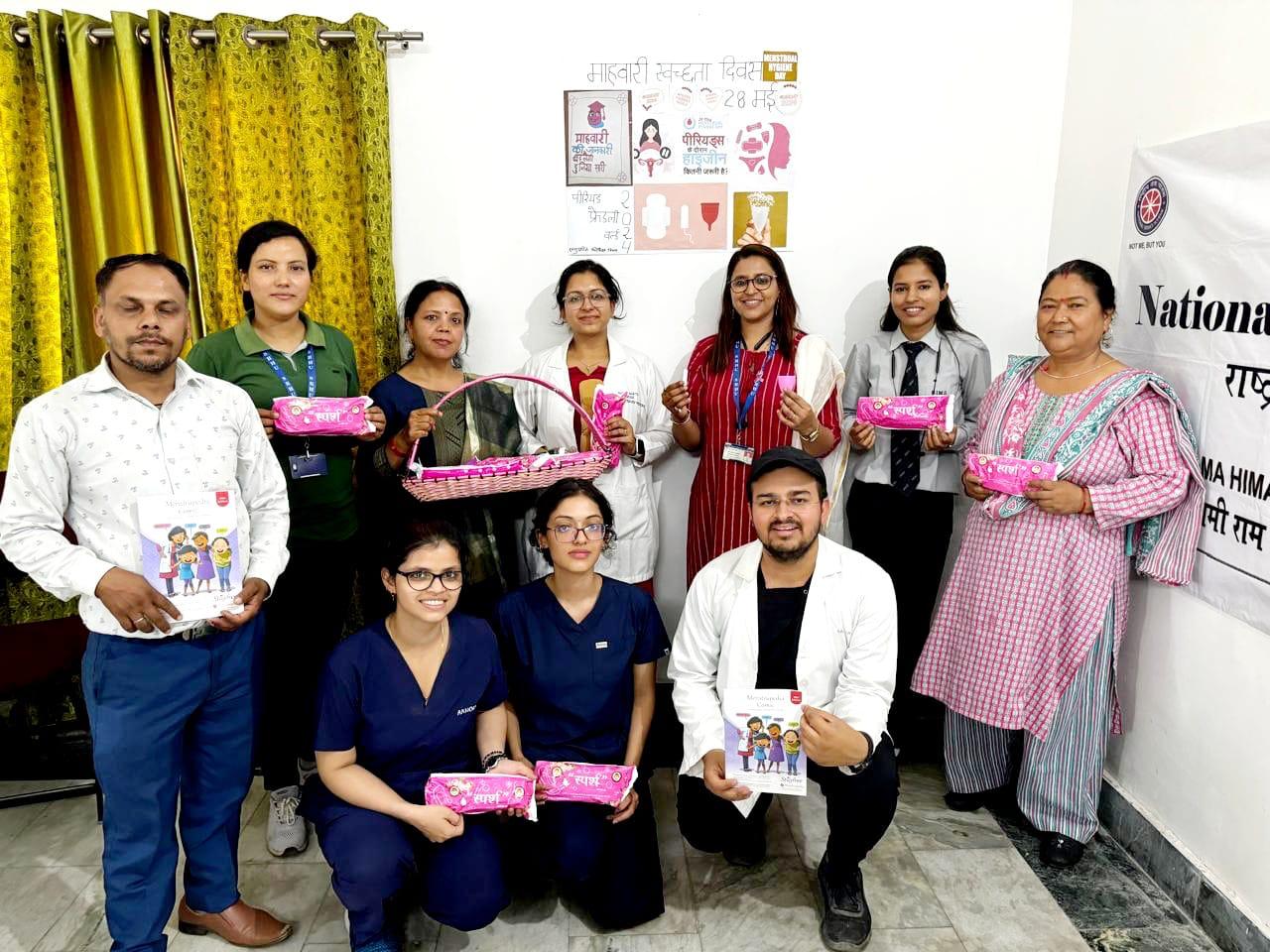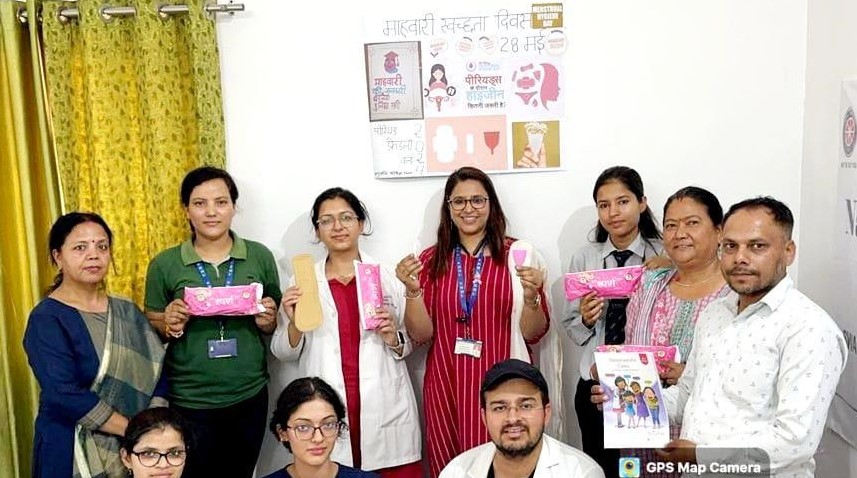Menstrual Hygiene Day: Awareness and Training Session for ASHAs at the Rural Health Training Centre
The Department of Community Medicine at the Himalayan Institute of Medical Sciences, Swami Rama Himalayan University, marked Menstrual Hygiene Day on May 28, 2024, with a comprehensive awareness and training session for Accredited Social Health Activists (ASHAs) at the Rural Health Training Centre (RHTC) in Gohri Mafi, Raiwala. Led by a team of experts including Dr. A.K. Srivastava (HoD), Dr. Abhay Srivastava (RHTC I/c), Dr. Neha Sharma (Asst. Professor & Nodal officer for Menstrual Hygiene Management), Dr. Avani Gupta, Mrs. Albert Grace (Public Health Nurse), and a group of dedicated interns and MSWs, the session aimed to empower ASHAs with the knowledge and skills necessary to support menstrual hygiene management (MHM) in rural areas.
Recognizing menstrual health as both a health issue and a human rights issue, the training session focused on the fundamental right to bodily autonomy and the capacity to care for one's body throughout the menstrual cycle. Despite the critical importance of menstrual hygiene, many individuals lack access to adequate facilities and supplies. Menstrual Hygiene Day, celebrated annually on May 28th, seeks to break the silence, raise awareness, and change negative social norms surrounding menstrual health and hygiene (MHH). This year’s theme, "Together for a #PeriodFriendlyWorld," underscored these goals.
The training session began with an introductory talk by Dr. Ashok Kumar Srivastava and Dr. Abhay Srivastava, who emphasized the biological aspects of menstruation and the importance of menstrual hygiene for women's health. This segment aimed to demystify menstruation and normalize conversations around it. Dr. Neha Sharma addressed the critical health implications of poor menstrual hygiene, including infections and other risks, and highlighted the need for clean and safe menstrual products and proper disposal methods. She provided training on the use of sanitary pads, menstrual cups, and cloth pads, along with instructions on their proper usage, storage, and disposal.
Interactive discussions played a key role in the session, with ASHAs sharing their experiences and the challenges they face in the field. These discussions helped clarify doubts and provided ASHAs with clear information to counteract myths in their communities. Dr. Rajendra Rana distributed educational materials, including Menstrupedia booklets, to ASHAs for use during their community visits. The session concluded with an open forum for questions and feedback, ensuring that the training was participant-centered and addressed the specific needs of the ASHAs
The training session successfully enhanced the knowledge and skills of the ASHAs, preparing them to be effective advocates for menstrual hygiene in their communities. Positive feedback from participants underscored the importance of such initiatives. Moving forward, the RHTC plans to conduct regular follow-up sessions and establish a support network for ASHAs to share experiences and challenges. By empowering ASHAs with the right knowledge and tools, the RHTC is making significant strides in improving menstrual hygiene management in rural areas, contributing to better health outcomes and the overall well-being of women and girls. The Menstrual Hygiene Day event at the Rural Health Training Centre was a significant step towards fostering a healthier and more informed rural population.
